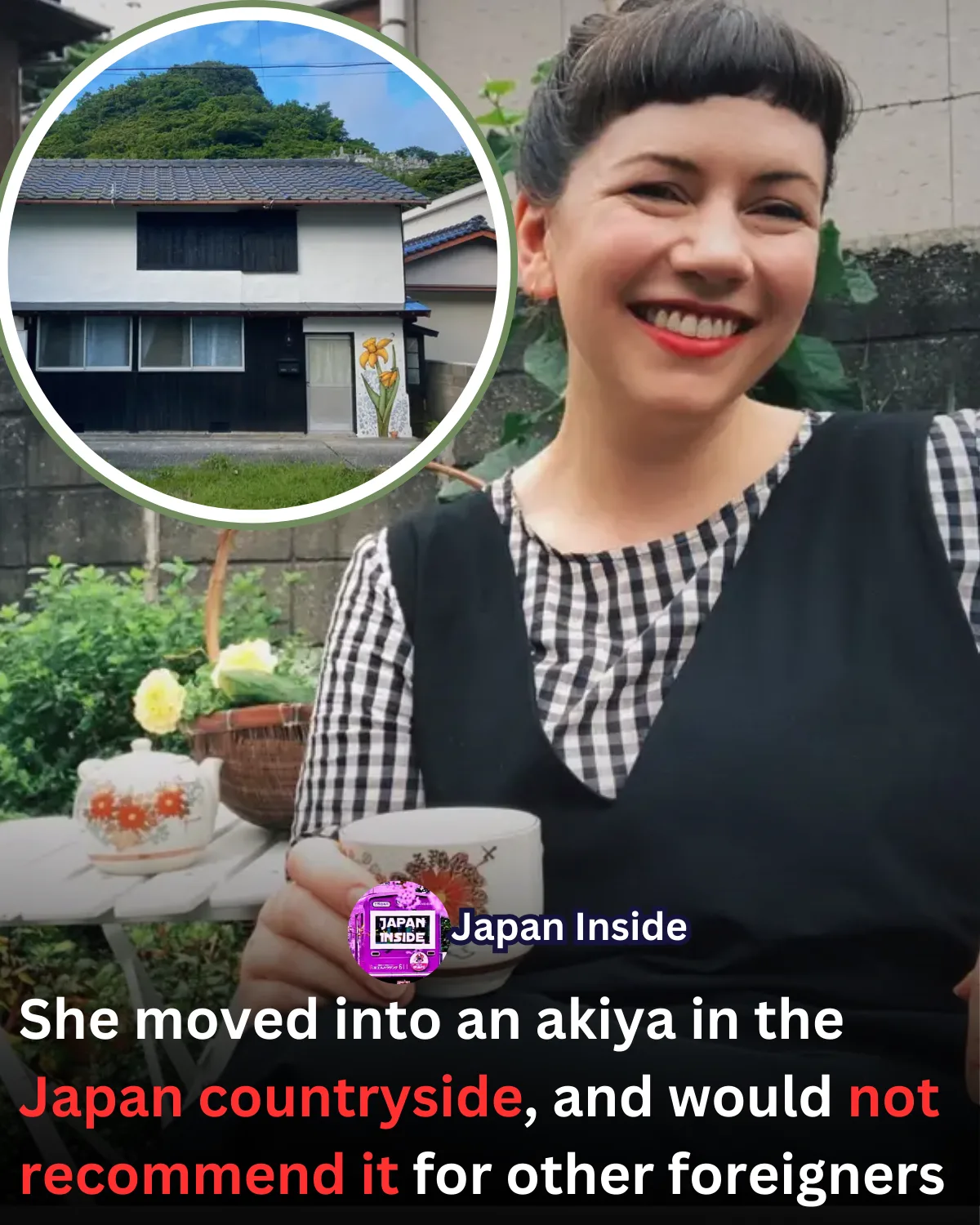Bethany Nakamura, a 35-year-old former inside designer from the United States, made a big life change in 2021 by transferring to Japan to show English. Seeking to flee the aggressive and high-pressure American company way of life, she fulfilled a childhood dream of residing in Japan.
In 2022, she acquired a free deserted home on Shikoku, the smallest of Japan’s 4 essential islands. The home, courting from the Shōwa period (1926-1989), was a conventional Japanese residence with tatami-mat flooring, distinctive pressed glass home windows, and a nostalgic retro really feel.
The essential stage spanned 1,000 sq. ft, with a further 250 sq. ft on the second stage.
Check Out These Akiya Deals:
Nakamura rapidly discovered that homeownership in Japan differs dramatically from the United States. Unlike in America, the place homes sometimes recognize in worth, Japanese homes depreciate. She found that the countryside was experiencing vital depopulation, with many vacant homes (also referred to as akiyas) out there.
Initially enthusiastic about renovating the home, Nakamura realized the property was already in glorious situation and didn’t want main adjustments.
She got here to understand the cultural nuances of Japanese residing areas and neighborhood expectations, noting that self-promotion and particular person monetary acquire are sometimes considered negatively in rural Japanese communities.
After residing in the home for a interval, Nakamura determined to not buy it. She advises different foreigners in opposition to instantly shopping for property within the Japanese countryside, emphasizing the necessity to perceive the tradition and neighborhood completely earlier than making such a dedication.
Recently, Nakamura moved to a different vacant home together with her husband, persevering with her journey of adapting to life in rural Japan. Her expertise highlights the complexities of cross-cultural residing and the distinctive strategy to homeownership in Japan.
Downsides of Japan Rural Living
Moving to rural Japan presents vital challenges that many foreigners don’t anticipate. Residents in these areas are required to take part in weekly neighborhood conferences and take turns with neighborhood cleanup duties, which generally is a substantial time dedication.
These social obligations aren’t elective – they’re an anticipated a part of being a neighborhood member. Infrastructure poses one other problem, as rural areas typically have restricted entry to medical amenities, and when plumbing or different family points come up, discovering immediate skilled assist might be troublesome.
The conservative social atmosphere of rural Japan could make integration significantly difficult for foreigners, and even fundamental providers require following particular protocols and formal request procedures.
Like many rural areas globally, job alternatives are restricted, which explains why many Japanese nationals themselves are relocating to city facilities. Those who transfer there typically discover themselves remoted not simply by distance, however by language obstacles and cultural variations that make even routine duties extra complicated to navigate.


